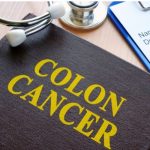General Ill Feeling After Colonoscopy: 5 Causes & When to See a Doctor.
Our content is not intended nor recommended as a substitute for medical advice by your doctor. Use for informational purposes only.
It is not uncommon to experience general ill feelings after a colonoscopy. Most of the time, the causes are simple. Commonly, the after-effects of anesthesia and colon preparation will make you feel unwell for some days after a colonoscopy.
You don’t have to worry if you don’t have warning signs such as fever, bloody stool, etc. (see the red flags below).
The causes of constipation & generalized ill feelings after colonoscopy include:
- Anesthesia after effects.
- Side effects of vigorous colon preparation.
- Transient bacteremia (colon bacteria reaching the blood).
- Infections.
- Risk factors include being female, having a chronic disease, older age, and prolonged colonoscopy procedures.
1. Anesthesia after effects.
According to the type of anesthesia, you may feel ill after a colonoscopy. The deeper the anesthesia, the more likely you will experience side effects.
Anesthesia from colonoscopy range from:
- No sedation at all → very few people choose this.
- Light sedation → You become slightly asleep but aware. And you can obey commands during the procedure.
- Moderate sedation → It is slightly more profound sedation.
- Deep sedation → You are unaware. However, you can respond to painful stimuli during colonoscopy.
- General anesthesia → Completely unaware, the anesthesiologist often inserts an endotracheal tube during colonoscopy. General anesthesia is used in major procedures during the colonoscopy or if you cannot tolerate pain.
People who choose deep sedation or general anesthesia are likelier to develop anesthesia after-effects. After-effects of anesthesia include:
- The general ill feeling after colonoscopy.
- Muscle aches.
- Headaches and dizziness for days after colonoscopy.
- Nausea, and maybe vomiting.
- Sore throat.
- Itching.
- Shivering (during recovery from anesthesia).
- Sleepiness for hours or a few days after colonoscopy.
- Dry mouth.
- Itching may also develop.
Learn More about the possible side effects of anesthesia.
2. Side effects of colon preparation.
Colon preparation aims to empty your colon before a colonoscopy. Preparation often requires mega doses of a laxative.
The most commonly used preparation is osmotic laxatives (as polyethylene glycol (MiraLax®)).
Osmotic laxatives work by drawing water into your colon. However, it can lead to side effects such as:
- Dehydration: This is more common in older people and children. The risk of dehydration increases when you fail to drink enough fluids.
- ‘Electrolytes disturbances: Osmotic laxative used during preparation may lead to disruption in your body trace elements such as potassium and sodium.
Both dehydration and electrolyte disturbances can cause general ill feelings after a colonoscopy.
Symptoms of dehydration (reference):
- Extreme thirst.
- Dry tongue, dry eye.
- General ill-feeling.
- Dizziness.
- Peeing too little.
- Fast heartbeats.
- Extreme causes may cause fainting and confusion.
Symptoms of electrolyte disturbances:
- General fatigue and ill-feeling.
- Muscle weakness.
- Twitches, tremors, and muscle cramps.
- Rapid or irregular heartbeats.
- Dizziness, confusion, or coma.
Learn More About Electrolyte Disturbances.
The condition usually lasts for a few days. Call your doctor if you don’t have a clear explanation for your ill feeling.
3 . Transient bacteremia.
Your gastroenterologist may perform invasive procedures during colonoscopy. For example, removing a polyp or taking a biopsy from a colon mass.
Such invasive procedures may enable colon bacteria to reach your bloodstream, a condition called (bacteremia).
Bacteremia is a term that refers to the presence of bacteria inside your bloodstream. Bacteremia is evident in up to 3.6% of patients after colonoscopy (reference).
Usually, your body’s immune system can get rid of the bacteria.
The majority will experience no symptoms.
Few people may experience minor symptoms such as general ill feelings for a few days after a colonoscopy.
Rarely, bacteremia results in severe infection and sepsis. People with defective immunity are more prone to such complications.
Symptoms of clinically significant bacteremia.
- General ill feeling and fatigue.
- Fever and chills.
- Loss of appetite (anorexia).
- Lightheadedness or dizziness.
- Shivering.
- Muscle aches.
- Rapid heartbeats, shortness of breath.
4. Infection.
Transient bacteremia rarely leads to true infection. And it is considered an accepted risk of colonoscopy (reference).
Infections usually occur locally inside the colon. But also systemic infection can affect immunocompromised patients.
The rate of infection after coloscopy is very rare. The incidence of infection ranges from 1 to 1.5 cases per 1000 colonoscopies (reference).
Infections can be in the form of (reference):
- Gastrointestinal infection (colitis, gastroenteritis).
- Access in the anorectal region.
- Inflammation of the peritoneum.
- Respiratory infections (such as aspiration pneumonia).
- Septicemia (bacteria releases its toxin into the blood and causes systemic infection).
The symptoms vary according to the site of infection.
For example
- Gut infections cause abdominal pain, diarrhea, nausea, vomiting, and fever.
- Respiratory infections cause shortness of breath, cough, expectoration, and fever.
The most common sign of infection is fever. Also, general ill feeling, muscle aches, and shivering are present with infection.
See your doctor immediately if you have a fever or general ill feeling.
5. Risky groups of developing general ill feelings and complications after colonoscopy.
- Females (They have a low threshold for pain).
- Ages older than 65 years old.
- Chronic diseases such as diabetes, inflammatory bowel disease, or cancer.
- Prolonged colonoscopy procedure.
- Procedures during colonoscopy such as removing a colon polyp or taking a biopsy.
Conclusion and when to see a doctor?
Generally, it is common to feel ill or fatigued for a a few hours or days after a colonoscopy. There is no need to worry unless you have signs of infection or extreme abdominal symptoms.
A simple thing to do is to measure your temperature. If there is no fever or other symptoms, then no need to worry.
The general ill feeling is usually due to the after-effects of anesthesia.
See your doctor if:
- Presence of fever (more than 37.2°C or 99.2°F).
- Signs of infection include muscle aches, fever, shivering, headache, anorexia.
- Signs of bowel perforation after colonoscopy include extreme abdominal pain, tender abdomen, blood in stool, and vomiting.
- Symptoms of dehydration include extreme thirst, dry tongue and mouth, and too little peeing.
- Symptoms of electrolyte disturbance such as muscle weakness, fast or irregular heartbeats.
- Evidence-based
- Written by a doctor.

Related Posts:
- 5 Main Causes of Throwing up Feeling after Eating…
- 8 Tips To Avoid Vomiting & Nausea During Colonoscopy…
- Can Vomiting Blood Cause Death? Doctor Explains.
- 6 Worst Foods To Avoid With Hypertension (Doctor Explains)
- Can You Develop Lactose Intolerance Later In Life?…
- 6 Colon Cancer Symptoms in Women: Doctor Explains.





